Xi heralds V-Day with troop cuts at parade
Updated: 2015-09-03 22:33
By By ZHAO HUANXIN and ZHANG YUNBI in Beijing(China Daily USA)
|
||||||||
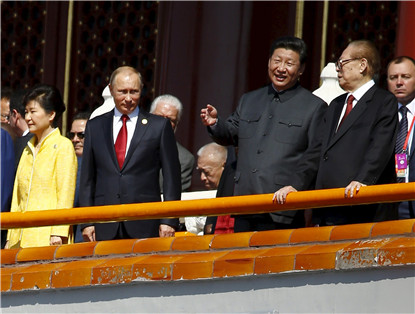 |
|
Chinese President Xi Jinping talks to former president Jiang Zemin (R) next to Russia’s President Vladimir Putin (2nd L) and South Korea’s President Park Geun-hye on the Tian’anmen Gate at the beginning of the military parade marking the 70th anniversary of the end of World War II in Beijing. Damir Sagolj / Reuters |
Chinese President Xi Jinping announced a troop reduction of 300,000 on Thursday, the nation’s fourth cut of troops since the reform and opening-up in the 1980s, as he kicked off China’s V-Day parade celebrating the victory in World War II that ended 70 years ago.
He delivered a speech at the iconic Tian’anmen Rostrum, fl anked by Chinese leaders, Russian President Vladimir Putin, South Korean President Park Geun-hye and other world dignitaries. Former Chinese presidents Jiang Zemin and Hu Jintao were also present at the rostrum.
The victory in the war against Japanese aggression is “the fi rst complete victory” won by China in its resistance against foreign aggression in modern times, Xi said.
The president said that this victory also re-established China as a major country in the world and won the Chinese people respect of all peaceloving people around the world.
“The experience of war makes people value peace even more,” Xi said. “No matter how much stronger it may become, China will never seek hegemony, China will never seek to expand and will never infl ict the tragedies it suff ered in the past upon others.”
The country suffered 35 million military and non-military casualties, accounting for a third of the total casualties of all the countries involved in World War II, making China the major Eastern battlefi eld of the war.
In addition to 12,000 Chinese troops, the spectacle featured 1,000 foreign troops from 17 other countries, including Russia. It was joined by 30 national leaders and UN Secretary- General Ban Ki-moon, indicating that Beijing intended to make the celebrations an international event, instead of a ceremony marking its own victories and suff erings.
One hundred Chinese veterans, most aged above 90, who fought against the Japanese invasion of China from 1937 to 1945, were also invited to participate in the parade, including a former member of the fabled Flying Tigers aviation brigade, a group of US airmen who piloted fi ghters to help defeat the invaders.
Allen Larsen, the US Flying Tigers veteran, said on Wednesday in Beijing: “I arrived in China 71 years ago yesterday... it’s a very important part of my life, and I shall never, never forget it.”
“China’s memory of the war is becoming more, not less, important,” Rana Mitter, a professor of modern Chinese politics and history at the University of Oxford, wrote in an article titled “Forgotten ally China’s unsung role in World War II”, circulated on US TV network CNN’s website on Tuesday.
If China had surrendered in 1938, Japan would have controlled China for a generation or more. Japan’s forces might have turned toward the Soviet Union, Southeast Asia or even India, the article reads.
“Chinese suff ering during the war is not in dispute,” he added. Former German chancellor Gerhard Schroeder, who was a guest to the parade, also said China made a very important contribution to the victory in the war, which was little known to Europeans.
“The successful resistance (made) by the Chinese people at great sacrifi ce was a very important contribution to ending the Second World War,” he said.
Since the middle of the last century, China has carried out such giant military shows only once a decade, with its last military parade staged for the 60th National Day in 2009.
In the 2015 parade, China showcased its military sophistication by rolling out 27 armament formations. Most of the 500 pieces of weaponry and equipment have never been shown to the public before.
Major General Peng Guangqian, deputy secretary-general of the China Council for National Security Policy Studies, said the formations of People’s Liberation Army presented at the parade highlight its action-oriented training philosophy.
“The Chinese people have suff ered from great misery imposed by the war and … understands the signifi cance and scarcity of peace. Their determination is strong to champion peace,” Peng said.
On Sept 2, 1945, Japan officially surrendered to the Allies aboard the USS Missouri, and seven days later to then-Chinese government in the eastern Chinese city of Nanjing.
In 1951, China’s government chose Sept 3 as the victory day in the Chinese People’s War of Resistance Against Japanese Aggression, and in 2014, the country’s top legislature ratifi ed it as a national memorial day.
Xinhua contributed to the story.
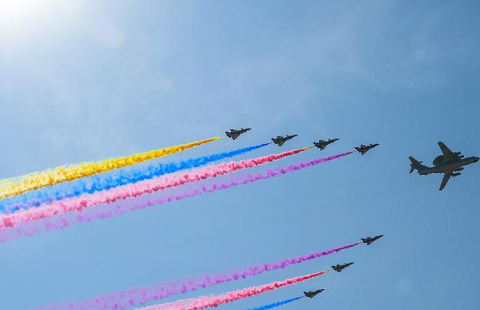
 Military helicopters write number 70 high in the sky
Military helicopters write number 70 high in the sky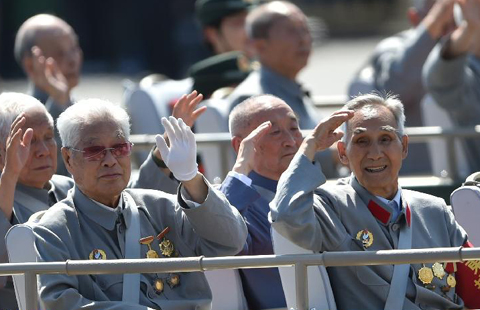
 Salute to veterans
Salute to veterans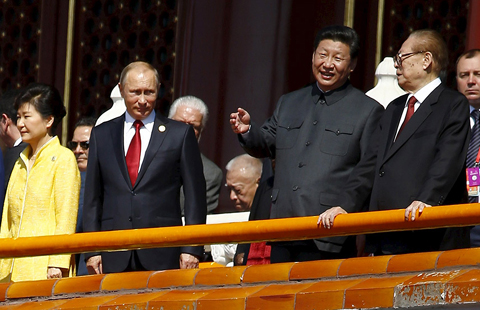
 Xi attends the ceremony with other leaders
Xi attends the ceremony with other leaders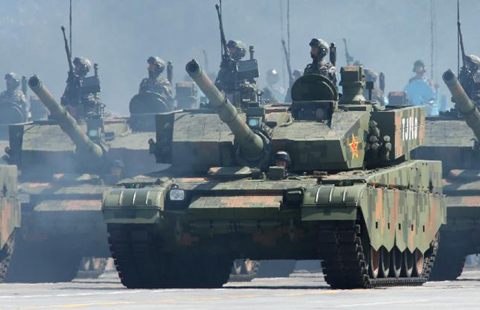
 Armored vehicles roll down the parade in huge roar
Armored vehicles roll down the parade in huge roar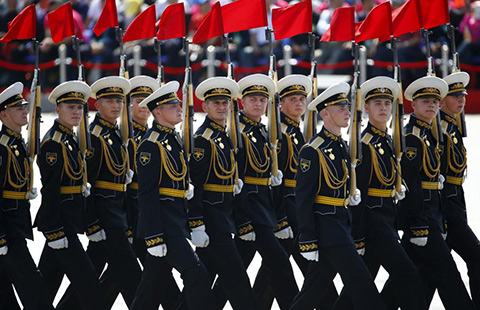
 Foreign troops celebrate with Chinese comrades
Foreign troops celebrate with Chinese comrades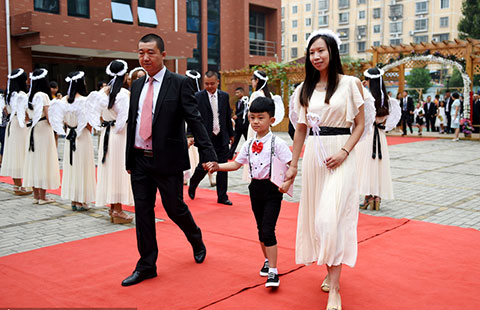
 Red carpet ceremony for first grade kids
Red carpet ceremony for first grade kids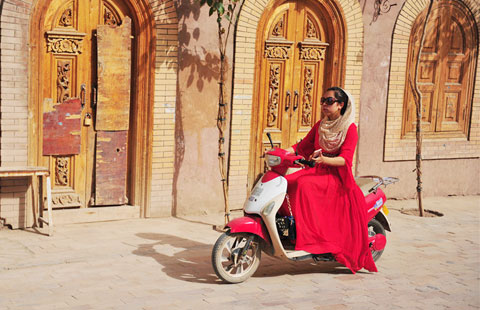
 Kashgar old city in Xinjiang is well preserved
Kashgar old city in Xinjiang is well preserved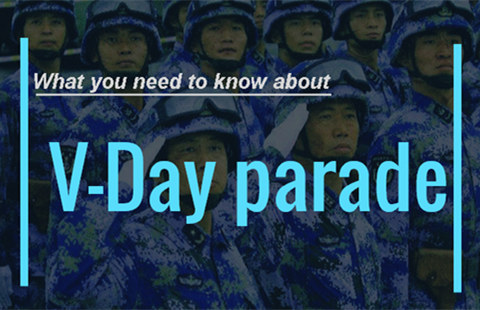
 Infographic: Symbols behind numbers
Infographic: Symbols behind numbers
Most Viewed
Editor's Picks

|

|

|

|

|

|
Today's Top News
15 US cities make world’s ‘least friendly’ list while China places 3
Xi heralds V-Day with troop cuts at parade
China to cut troops by 300,000: President Xi
China holds parade, vows peace on war anniversary
Peking Opera: Star power
IMF: China can transition
Xi urges cross-Straits honoring of history
Xi awards medals to veterans
US Weekly

|

|








